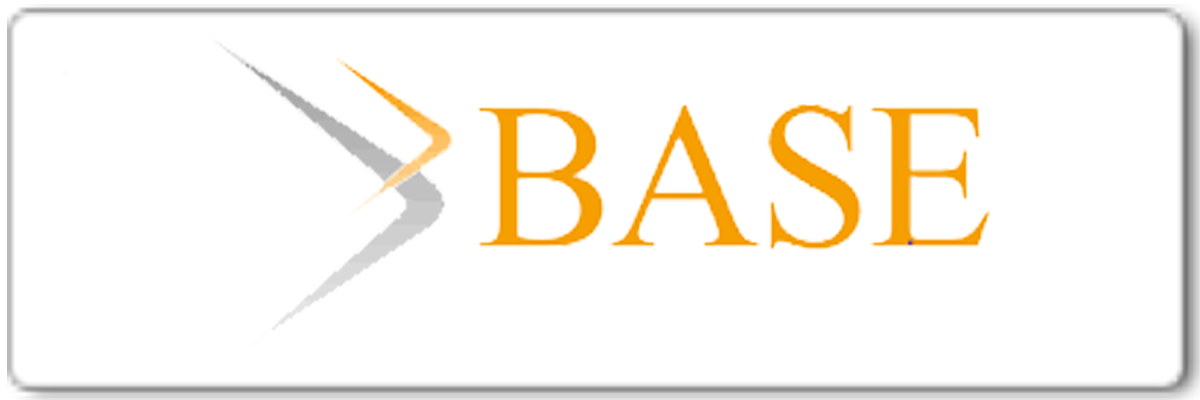Implementation of Argument-Driven Inquiry Learning Model to Enhance Student’s Science Process Skills and Self-Efficacy
Abstract
Keywords
Full Text:
PDF (English)References
Asrizal, A., Amran, A., Ananda, A., & Festiyed, F. (2018, April). Effectiveness of adaptive contextual learning model of integrated science by integrating digital age literacy on grade VIII students. In IOP Conference Series: Materials Science and Engineering (Vol. 335, No. 1, p. 012067). IOP Publishing.
Dwianto, A., Wilujeng, I., Prasetyo, Z. K., & Suryadarma, I. G. (2017). The development of science domain based learning tool which is integrated with local wisdom to improve science process skill and scientific attitude. Jurnal Pendidikan IPA Indonesia, 6(1).
OECD, (2018). PISA 2018, insights and interpretations, [Online]. Available: (https://www.oecd.org/pisa/publications/pisa-2018-results.htm), [accessed November 21st, 2019].
Subekti, Y., & Ariswan, A. (2016). Pembelajaran fisika dengan metode eksperimen untuk meningkatkan hasil belajar kognitif dan keterampilan proses sains. Jurnal Inovasi Pendidikan IPA, 2(2): 252-261.
Fakhriyah, F., Masfuah, S., Roysa, M., Rusilowati, A., & Rahayu, E. S. (2017). Student's Science Literacy in the Aspect of Content Science?. Jurnal Pendidikan IPA Indonesia, 6(1): 122870.
Lestari, M. Y., & Diana, N. (2018). Keterampilan proses sains (KPS) pada pelaksanaan praktikum Fisika Dasar I. Indonesian Journal of Science and Mathematics Education, 1(1): 49-54.
Eymur, G. (2018). Developing High School Students’ Self-Efficacy and Perceptions about Inquiry and Laboratory Skills through Argument-Driven Inquiry. Journal of Chemical Education, 95(5): 709-715.
Rosidin, U., Kadaritna, N., & Hasnunidah, N. (2019). Can Argument-Driven Inquiry Models Have Impact On Critical Thinking Skills For Students With Different Personality Types?. Jurnal Cakrawala Pendidikan, 38(3): 511-526.
Amin, A. M., & Corebima, A. D. (2016). Analisis Persepsi Dosen Terhadap Strategi Pembelajaran Reading Questiong And Answering (RQA) Dan Argument Driven Inquiry (ADI) Pada Program Studi Pendidikan Biologi Di Kota Makassar. In Prosiding Seminar Nasional II (pp. 333-347).
Hasnunidah, N., & Rosidin, U. (2019, April). Development of Laboratory Worksheet with Argument-Driven Inquiry Model to Enhance the Student's Argumentation Skills. In International Conference on Educational Sciences and Teacher Profession (ICETeP 2018) (pp. 223-231). Atlantis Press.
Puspendik. (2019). Laporan hasil ujian nasional, [Online]. Available: (https://hasilun.puspendik.kemdikbud.go.id/), [accessed November 24th, 2019].
Rojabiyah, A. B., & Setiawan, W. (2019). Analisis Minat Belajar Siswa MTs Kelas VII dalam Pembelajaran Matematik Materi Aljabar Berdasarkan Gender. Journal on Education, 1(2): 458-463.
Prana, I. G. L. A. A., Sadia, I. W., & Swasta, I. B. J. (2018). Pengembangan LKS Sains dengan Setting Model Pembelajaran PBL untuk Meningkatkan Keterampilan Berpikir Kritis dan Efikasi Diri. Thinking Skills and Creativity Journal, 1(2): 66-75.
Simorangkir, A., & Rohaeti, E. (2019, June). Exploring of Students’ Self-Efficacy: The Beliefs while Learning Process in Buffer Solution. In Journal of Physics: Conference Series (Vol. 1233, No. 1, p. 012017). IOP Publishing.
Fatimah, S. (2017). Analisis Karakter Sains Dan Keterampilan Proses Sains Ditinjau Dari Efikasi Diri Pada Pembelajaran IPA Berbasis Masalah Melalui Metode Proyek. Prosiding FKIP, 2(6): 10-17.
Lee, M. H., Liang, J. C., Wu, Y. T., Chiou, G. L., Hsu, C. Y., Wang, C. Y., ... & Tsai, C. C. (2020). High school students’ conceptions of science laboratory learning, perceptions of the science laboratory environment, and academic self-efficacy in science learning. International Journal of Science and Mathematics Education, 18(1): 1-18.
Erika, F., Prahani, B. K., Supardi, Z. A. I., & Tukiran. (2018). Development of a graphic organizer-based argumentation learning (GOAL) model for improving the self-efficacy and ability to argue of chemistry teacher candidates. World Transactions on Engineering and Technology Education, 16(2): 179-185.
Nikmah, C., Tukiran, T., & Nasrudin, H. (2020). Improvement Of Self Efficacy And Student Learning Outcomes Using Argument Driven Inquiry Learning Model. Jurnal Pendidikan Sains (JPS), 8(2): 133-138.
Amielia, S. D., Suciati, S., & Maridi, M. (2018). Enhancing Students’ Argumentation Skill Using an Argument Driven Inquiry-Based Module. Journal of Education and Learning (EduLearn), 12(3): 464-471.
Callahan, R. M., Sampson, V., & Rivale, S. (2019). Activating bilingual English language learners’ strengths in science: The pedagogy of argument driven inquiry (ADI). In Teaching the content areas to english language learners in secondary schools (pp. 183-197). Springer, Cham.
Subali, B. (2009, July). Pengembangan tes pengukur keterampilan proses sains pola divergen mata pelajaran biologi SMA. In Makalah disajikan dalam Seminar Nasional Biologi, Lingkungan dan Pembelajarannya, Jurdik Biologi, FMIPA, Universitas Negeri Yogyakarta, Yogyakarta (Vol. 4, pp. 581-593).
Lin, T. J., & Tsai, C. C. (2013). A Multi-Dimensional Instrument For Evaluating Taiwanese High School Students’science Learning Self-Efficacy In Relation To Their Approaches To Learning Science. International Journal of Science and Mathematics Education, 11(6): 1275-1301.
Meltzer, D. E. (2002). The relationship between mathematics preparation and conceptual learning gains in physics: A possible “hidden variable” in diagnostic pretest scores. American journal of physics, 70(12): 1259-1268.
Ismail, H. F. (2018). Statistika untuk penelitian pendidikan dan ilmu-ilmu sosial. Kencana.
Nufus, H., Rosidin, U., Herlina, K., & Hasnunidah, N. (2018). Pengaruh Penerapan Model Argument-Driven Inquiry Terhadap Keterampilan Berpikir Kritis Siswa SMP Berdasakan Perbedaan Kemampuan Akademik. Jurnal Pendidikan Fisika, 7(2): 110-117.
Hunaidah, M., Erniwati, E., & Jusmiani, I. Penerapan Model Pembelajaran Argument Driven Inquiry (ADI) untuk Meningkatkan Hasil Belajar dan Keterampilan Argumentasi Ilmiah Peserta Didik. Jurnal Penelitian Pendidikan Fisika, 4(4): 178-185.
Marhamah, O. S., Nurlaelah, I., & Setiawati, I. (2017). Penerapan model argument-driven inquiry (ADI) dalam meningkatkan kemampuan berargumentasi siswa pada konsep pencemaran lingkungan di kelas X SMA Negeri 1 Ciawigebang. Quagga: Jurnal Pendidikan dan Biologi, 9(02): 39-45.
Wiarsana, I. G. S. (2020). Pengaruh Self Efficacy, Motivasi Berprestasi, dan Study Habits Terhadap Literasi Sains Siswa. Jurnal Pendidikan Sains (JPS), 8(2): 110-120.
Hadiwidodo, S., Tukiran, T., & Taufikurahmah, T. (2017). Pengembangan perangkat pembelajaran kimia model argument driven inquiry untuk meningkatkan keterampilan argumentasi dan hasil belajar siswa. JPPS (Jurnal Penelitian Pendidikan Sains), 7(1): 1416-1421.
DOI: http://dx.doi.org/10.26737/jipf.v7i1.2168
Refbacks
- There are currently no refbacks.
Copyright (c) 2022 Rizka Nurul Dina, Zainuddin Zainuddin, Andi Ulfa Tenri Pada

This work is licensed under a Creative Commons Attribution-NonCommercial 4.0 International License.
Publisher
Institute of Managing and Publishing of Scientific Journals
STKIP Singkawang
Jl. STKIP, Kelurahan Naram, Kecamatan Singkawang Utara, Kota Singkawang, Kalimantan Barat, Indonesia
Website: http://journal.stkipsingkawang.ac.id/index.php/JIPF
Email: [email protected]
JIPF Indexed by:
Copyright (c) JIPF (Jurnal Ilmu Pendidikan Fisika)
ISSN 2477-8451 (Online) and ISSN 2477-5959 (Print)































